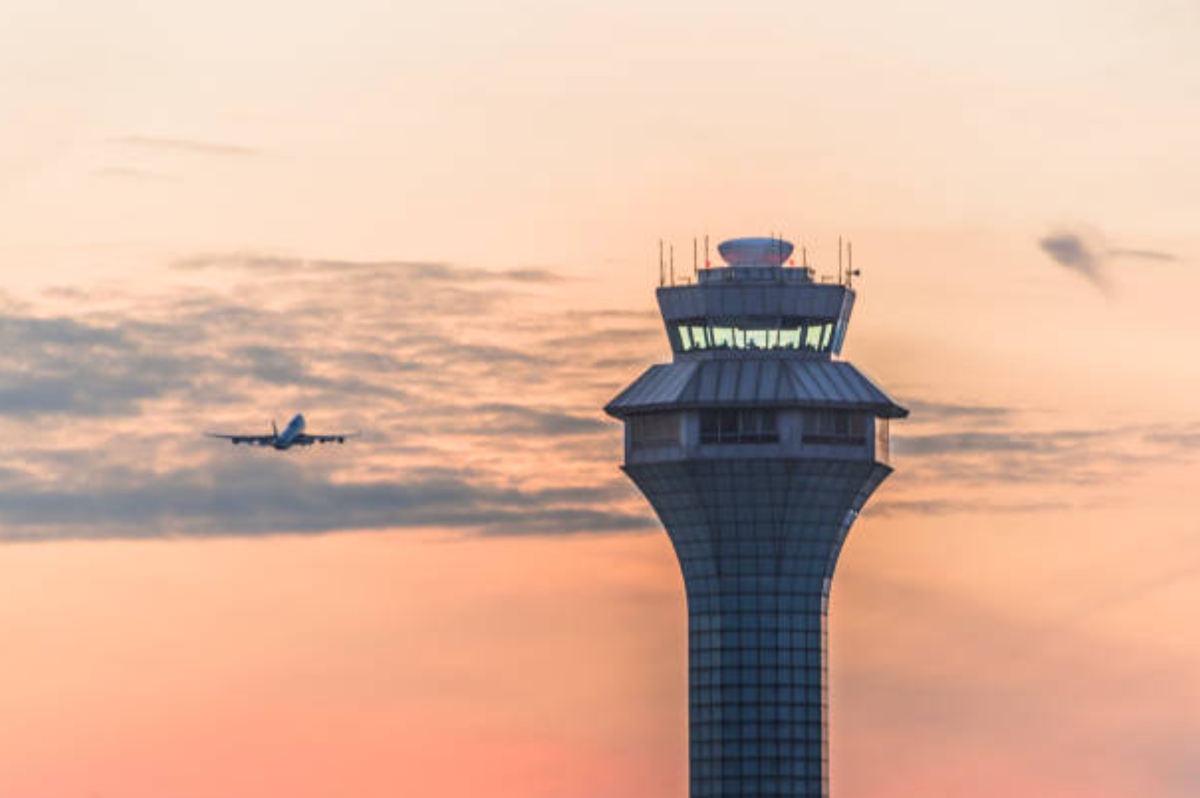Cup of Coffee: November 6, 2025
Transactions, Trump's endangered tariffs, signs, signs, everywhere signs, a dumb government shutdown gambit, how the AI crash might happen, London 101, and a lesson in pub etiquette

Buenos Días! And welcome to Free Thursday!
As this newsletter hits your inbox I am in Madrid, on that first-day-power-through which people who didn't really plan ahead go through in an effort to fight off jet lag. We'll see how it goes. Maybe if just eat all the cured ham and drink all the wine things will work out OK. I'll let you know.
In the meantime, let's get on with our day.
The Daily Briefing
Atlanta exercises Chris Sale's option
In a profoundly unsurprising move the Atlanta Baseball Club picked up its $18 million option on starter Chris Sale yesterday.
Sale posted a 2.58 ERA (161 ERA+) and a fantastic strikeout rate over 125.2 innings in 2025. He battled injuries once again, but it was a freakish rib injury he sustained while diving for a ball, not arm or shoulder trouble. The 2024 Cy Young Award winner will turn 37 just after Opening Day, and given his history durability will always be a concern, but there has yet to be any real signs of him losing effectiveness.
Jorge Polanco declines his player option
Mariners second baseman Jorge Polanco has declined a player option to return to the Mariners in 2026. It was originally an $8 million mutual option, but it was converted into a $6 million player option once Polanco reached 450 plate appearances. Those plate appearances came in the course of a really nice bounce back season which saw Polanco hit .265/.326/.495 (134 OPS+) in 2025. That should earn him way more than $6 million on the open market this winter.
Atlanta names new coaches
Atlanta also announced some coaching news yesterday, naming Jeremy Hefner their new pitching coach and Antoan Richardson their first base coach. Both coached in those positions with the Mets last year.
Hefner has been among the more respected pitching coaches in the game over the past several years, with his departure from the Mets being a function of someone having to take the fall for disappointing results. Richardson has been lauded for helping the Mets become one of the most successful base-stealing clubs over the past couple of seasons. Specifically, he got a lot of credit for Juan Soto going from being a guy who usually registered single-digit stolen base totals to him leading the NL with 38 swipes in 2025. One has to figure that he'll encourage Atlanta base runners to steal more often a year after they finished a mere 26th in baseball with just 82 steals in 2025.
Meanwhile, in Colorado
Coloradans voted Tuesday to increase taxes on wealthy households to fully fund free breakfast and lunch for all public school kids and bolster the federal Supplemental Nutrition Assistance Program, also known as SNAP or food stamps. The Associated Press projected that Proposition MM would pass at 8:25 p.m. when 57% of the votes counted were in support of the measure and 43% were opposed.
The increased taxes on households earning at least $300,000 will shore up funding for free school meals for all public school children, provide raises for school meal staff, and support school district efforts to buy locally-sourced food.
This is really gonna throw a wrench into the Rockies' plans to attract all of the blue chip free agents.
Other Transactions
- The Yankees exercised their $3 million club option on lefty reliever Tim Hill. The 35-year-old posted a 3.09 ERA (132 ERA+) in 67 innings over 70 appearances in 2025;
- The Yankees declined their $5 million club option on righty Jonathan Loáisiga The 31-year-old has battled injuries over the last few seasons, including a back injury and flexor strain this past season that limited him to 30 games. That was better than his 2024 and 2023, however, in which he pitched in just 20 games total; and
- The Mariners acquired righty Cole Wilcox from the Rays for cash considerations. Wilcox was the last of the four players the Rays had in house whom they acquired when they traded Blake Snell to the Padres a few years ago. He has made just one major league appearance for the team, giving up seven runs — three earned — in one inning in September so, um, yeah. He was pretty decent at Triple-A, however, and going to Seattle from the minor league parks in which he toiled – which includes where the Rays played last year – is probably a good thing;
- There were likely other transactions but this was it by the time they closed the door on my flight last night, so talk amongst yourselves about anything I missed.
Other Stuff
The Supreme Court is poised to blow Trump's tariffs out of the water
Oral arguments were held in the case of Learning Resources v. Trump at the Supreme Court yesterday. That case challenges Trump's unilateral imposition of tariffs since taking office. The day did not go well for our lawless president.
Given that the Constitution explicitly reserves the right to raise tariffs – and levy taxes of any kind – to Congress, it has been patently obvious that what Trump has been doing in this regard is illegal from Day One. Of course, given that this Supreme Court has made it its mission to grant Donald Trump any and every power to which he claims a right and to otherwise insulate him from any legal consequences, one would be forgiven for thinking that he'd be able to get away with his imposition of tariffs as well.
Per Slate's Mark Joseph Stern, however, that does not appear as though it's gonna be the case:
Going into Supreme Court arguments over President Donald Trump’s tariffs on Wednesday, it was genuinely difficult to guess how the justices would rule. Within minutes, that suspense vanished. The hearing was a bloodbath for the Trump administration: Six justices lined up to bash the Justice Department’s defense of the tariffs, barely disguising their annoyance with the government’s barrage of blustery nonsense. At the halfway point, it would’ve saved everyone time had the court just huddled, announced its decision from the bench, and recessed early for lunch. Trump’s signature trade policy—which he expected to raise trillions of dollars for him to use as he wished—looks dead on arrival at SCOTUS. We have spent ten months waiting to see if, and when, this court would set a limit on Trump’s power. Perhaps we should’ve guessed that its extraordinary deference to this president could be outweighed only by its hatred of taxes.
Trump's tariffs are gonna get whacked, folks. Between that and the election night disaster that befell Republicans, it would not be at all shocking if at least some of the Republicans in Congress who have been allowing Trump to get away with everything, including literal murder, began to get worried that doing his bidding is gonna go badly for them, personally, pretty damn soon. If that happens – if Congress begins to look for its spine again in even modest ways – the Trumpist fascist agenda will lose its momentum in a real goddamn hurry.
Sean Duffy is poised to blow up our nation's transportation system
Speaking of Trump losing momentum, yesterday we got some more dumb news from the geniuses of the Trump administration:
The Federal Aviation Administration announced Wednesday that it will reduce air traffic by 10% across 40 “high-volume” markets beginning Friday morning to maintain safety during the ongoing government shutdown.
The agency is confronting staffing shortages caused by air traffic controllers, who are working unpaid, with some calling out of work during the shutdown, resulting in delays across the country.
My guess is that Duffy and whoever else in Trump's world who is quarterbacking this is going after "high-volume" markets because those are generally in blue cities and states and they think that by doing so they're only hurting Democrats. Because obviously only Democrats fly through Atlanta, Chicago, Denver, New York, and Los Angeles. And because, as we all know, problems at one airport never, ever affect the rest of our air travel system that is in no way whatsoever interconnected.
To the extent this is a political gambit – and I think it is – it's a pretty dumb one. The public already overwhelmingly blames Republicans for the government shutdown, so bad stuff that spins out of this is only gonna hurt Trump more. The messaging for Democrats on this – "Trump canceled your flight" – is about as easy as it gets. Add in the fact that most of the dipshits in Trump's orbits fly on private or military planes rather than commercial, and there's no way they come out of this looking good or making the sort of point they think they're gonna make. They're just gonna make everyday travelers miserable and they will absolutely be blamed for it.
For my part, I am planning on flying back through Boston and home to Columbus on Tuesday. If they actually follow through with this and mess everything up over the weekend, well, I guess I'd just have to stay in Spain longer. What a horrible shame that would be.
That should clear things up around here
This is one of my favorite Far Side cartoons:

In related news, Donald Trump has had a sign put up outside his office:

Yeah, that looks like it was printed on actual paper or card stock and taped up outside the Oval Office. No word if they put one up in the kitchen that says "Gather" or one in the living room that says "Live, Laugh, Love."
At the absolute best this is the latest example of Trump attempting to transform the White House into some tacky-ass Mar-A-Lago North kinda place. However I would not rule out this being one of those deals where someone labels everything because there's someone with a severe cognitive disability living in the house and doing so makes things simpler for them.
But I suppose it could be worse. The signs could've used the papyrus font.
How the AI crash happens
Last week The Atlantic ran a story by Matteo Wong and Charlie Warzel that, at least to me, sounds scary as hell. It's about the potential for an AI crash.
The article was not predicting one, necessarily, and the writers do not appear to be anti-AI cranks like me or doomers or anything. But even the objective observations they make regarding the big money going into AI these days – specifically, the massive investment in data centers that are being dropped all over the country to support the overall ramp-up – sets off all kinds of alarm bells:
Tech firms don’t want to formally take on debt—that is, directly ask investors for loans—because debt looks bad on their balance sheets and could reduce shareholder returns. To get around this, some are partnering with private-equity titans to do some sophisticated financial engineering, Paul Kedrosky, an investor and a financial consultant, told us. These private-equity firms put up or raise the money to build a data center, which a tech company will repay through rent. Data-center leases from, say, Meta can then be repackaged into a financial instrument that people can buy and sell—a bond, in essence . . . And multiple data-center leases can be combined into a security and sorted into what are called “tranches” based on their risk of default. Data centers represent an $800 billion market for private-equity firms through 2028 alone . . . In this way, the data-center financing ends up being a real-estate deal as much as an AI deal.
The article goes on to explain what anyone who lived through the 2008 financial crisis doesn't have to have explained to them: that this is pretty much the same debt hot potato model that fueled the subprime mortgage crash which kicked off the Great Recession. It's a sustainable model as long as the debt is good and everyone's making their payments, but the moment that changes – say, when the identity of the winners and the losers of the AI land rush start to come into better focus and the losers begin to cut bait or go belly-up and default on all that debt that they're not actually calling debt – it could come crashing down.
What's more, the massive investment in AI infrastructure seems to be markedly circular:
For now, money is still pouring into the AI industry. But there’s also something circular about these investments. To wit: OpenAI has agreed to pay $300 billion to Oracle for new computing capacity, Oracle is paying Nvidia tens of billions of dollars for chips to install in one of OpenAI’s data centers, and Nvidia has agreed to invest up to $100 billion in OpenAI as it deploys Nvidia chips. Attempts to illustrate these circular investments have produced a series of byzantine charts that one software engineer referred to on X as “the technocapital hyperobject at the end of time.” The consensus seems to be that although this is legal, it likely cannot go on forever.
That's not a Ponzi scheme, legally speaking. But it sure as hell feels like one on a spiritual level. And, as the article notes, it was exactly this sort of circularity that typified the 2022 crypto crash.
I don't think that AI is going away – for all of my beefing about the consumer-facing, generative AI aspects of it I appreciate that there are and will continue to be a lot of important and even potentially revolutionary applications for it – but I do think that we're out over our skis at the moment.
As the writers of the article note, there have been many emergent technologies that created economic and even existential anxiety but which, eventually, proved themselves to be economically and culturally transformative and which we could not imagine being without now. But all of the revolutions and innovations of our industrial and technological past were accompanied by massive investments by a massive number of companies trying to cash in, followed by a great winnowing in which only a handful of winners emerged successful and sustainable. In the normal course of things, that's just how capitalism works.
But when everything and everyone is intertwined in a complicated arrangements aimed at defying basic economic gravity, there is a massive risk of the failures dragging down the winners. And a hell of a lot of other people an companies too. Maybe even the whole damn economy.
London 101 and The Essential Guide to Pub Etiquette
While I may be in Spain at the moment, you all know that I'm one of the most depraved Anglophiles going. To that end, I provide you with two UK links today that will be useful for you if you plan to become a total sicko like me and willingly spend a good chunk of your disposable income traipsing around a rainy island full of pasty people who are still grappling with the fact, nearly a hundred years later, that they no longer rule the world.
The first one is Your Guide to London (gift link).
Ever since I've been traveling to London I've had people ask me what to do, where to go, where to stay, where to eat, and all of that. This New York Times "Travel 101" feature is not perfect in that regard – no such guide could be – but it's pretty good as far as these things go and I'd have no problem forwarding it on to a friend who is planning their first trip and has basic questions.
The guide is not necessarily great for hotels and restaurants. I mean, yes, the ones they mention are all fine as far as I know, but London is so big and has so many options there really aren't many "must stay" or "must eat" places. For lodging, unless you're rich and you want to do it up like an aristocrat, just find a well-reviewed hotel in your price range in an area you want to be and you'll be fine. And while the negative stereotypes about British food are woefully out of date as far as I'm concerned, it's still the case that, absent specific, special occasion-type meals on your agenda, a tourist's best bet is to just get a decent breakfast, available anywhere, a quick meal deal-style lunch on the go, and to get some neighborhood pub or Indian food for dinner.
Beyond that, the NYT guide is pretty good when it comes to sights to see, neighborhoods to check out, and experiences to have to make if feel like you've Been To London. Some natives will roll their eyes at you, but dammit, go have tea and go eat a Sunday roast. Go have a pint or three in a pub in a non-touristy area. Ride in a goddamn double-decker bus. Check out the smaller street markets and some of the more obscure, weird museums. Walk in parks. Travel experts and Jedi-level Anglophiles will no doubt take issue with some of the stuff mentioned here, but a first-time American tourist could do way worse than this guide.
The second site is The Essential Guide to Pub Etiquette.
This was put out earlier this week by Pellicle, a drinks-related publication/podcast that focuses on UK beer, cider, wine, pubs and all of that. And it's pretty damn useful! Because while most people have experience with bars – and while British pubs are by no means intimidating – there are a good number of minor differences between your neighborhood dive and a pub, and this guide brings up some of them.
The most notable ones in my experience are (a) not lining up behind people when the bar is busy but, rather, just finding a place at the bar and waiting for the bartender, who knows what they're doing, and who will get to you in good time; (b) erring on the side of closing out your tab after every round rather than running a tab unless prompted to run a tab; and (c) knowing your order before they ask you and keeping it simple (i.e. get your espresso martinis and mojitos at a restaurant or cocktail bar and keep it to pints, wine, seltzers, and simple two-ingredient cocktails at pubs). And by all means, take your empty glasses back to the bar before you leave.
Having written all of that, I want to go back to the UK again. Good thing I already have a couple of trips planned there for 2026.
[Editor: You need help. You realize that, don't you?]
Aye.
Have a great day everyone.

Comments ()